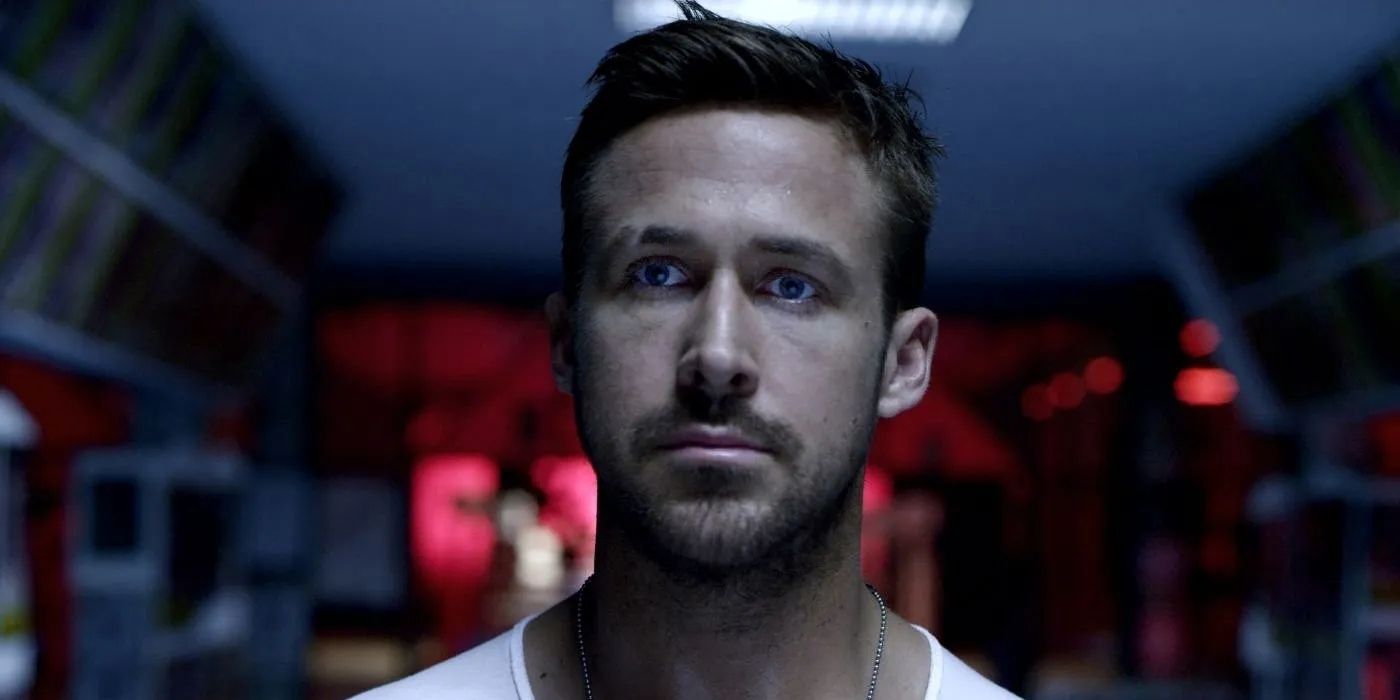Despite the brevity of his performance, Tom Burke proved that he deserves the spotlight in this arthouse crime thriller.

While his early work on the prison drama Bronson and the Viking epic Valhalla Rising were both met with critical praise, director Nicolas Winding Refn proved himself to a significant audience with his 2011 heist thriller Drive. Between its synthetic musical score, eye-popping visuals, and surprisingly emotional performances, Drive solidified itself as a modern classic within the neo-noir genre. However, those expecting Refn to repeat Drive’s success may have been disappointed to find that his follow-up project was far more experimental. Refn’s revenge thriller Only God Forgives attracted immediate controversy for its arthouse qualities and brutal violence.
Only God Forgives marked a reunion for Refn with Ryan Gosling in another dark, malevolent role in which he had very little dialogue. The film also served as a breakout for Tom Burke, who would later be cast alongside Anya Taylor-Joy in George Miller’s Furiosa: A Mad Max Saga. Only God Forgives may have been intentionally polarizing, and is certainly not for the faint of heart. However, the excellent performances and interesting commentary on cyclical violence makes Only God Forgives worth considering as an arthouse crime thriller.
What Is ‘Only God Forgives’ About?
Set within the criminal underworld of Bangkok, Only God Forgives centers on two American brothers who run a brutal underground boxing ring that secretly works in coalition with the city’s illicit drug ring. While neither Julian (Ryan Gosling) nor Billy (Tom Burke) seem interested in upsetting the criminal infrastructure of the city, that doesn’t mean that they don’t have lurid pleasures. Billy sparks conflict when he attempts to sleep with an underage prostitute, only to be brutally killed by the vigilante police detective Chang (Vithaya Pansringarm), who goes by the moniker “Angel of Vengeance.” Infuriated that her family’s honor has been disrespected, Julian’s mother Crystal Thompson (Kristin Scott Thomas) orders him to achieve revenge by whatever means necessary.
Refn is the real star of the film, as Only God Forgives’ characters are intentionally one note and detached. In order to show how truly depraved their actions are, Refn strips away any specificities to the characters of Julian and Billy that could in any way endear them to the audience. The moment of violence that is committed at the beginning of the film is shocking, but not because Billy is in any way a likable character; Refn seeks to criticize violence itself, as opposed to bludgeoning the viewer with an emotional moment. Gosling and Burke succeed in making the characters as bland and straightforward as possible. They rarely give any subtle physical movements that would in any way indicate character progression.
Although the violence Refn incorporates is quite realistic, Only God Forgives includes many moments of surrealism. The film is soaked in neon lighting that feels closer to a dream than a slice of reality; the moody atmosphere and lack of cultural details only further indicates the dispassion at the heart of the narrative. The fight scenes themselves are presented without significant foreshadowing, as if Refn is criticizing the banal manner in which violence is committed. A surprising musical performance by Chang in the film’s closing credits seems to confirm that Only God Forgives shouldn’t be compared to traditional narrative structures.
‘Only God Forgives’ Is a Deeply Metaphorical Revenge Drama
Although the lack of significant characterization may be a barrier for some viewers, Only God Forgives serves as a commentary on the cyclical nature of violence. Julian’s revenge mission isn’t one that he has any personal investment in, as it’s seen as an obligation above anything else. Even when discussing her son’s death, Crystal acts as if the crime was a personal insult to her stature, and never shows any signs of grief. As muted as the film’s dialogue is, Only God Forgives truly gets a burst of energy whenever Thomas is onscreen; her malevolent, nasty characterization of Crystal serves as the “Lady Macbeth” of the story.
There’s a timelessness to Refn’s commentary on guilt and bloodlust, but Only God Forgives also serves as a sharp critique of white ignorance. It’s evident that Julian and Billy operate in Bangkok with no knowledge of the city’s vast cultural history, and have no respect for the traditions that have been put in place. Chang’s role in the story isn’t simply to serve the law, but to restore the traditional values that have been threatened by the western visitors. Despite his seemingly noble intentions, Chang is depicted as a terrifying force of nature who is absolutely unrelenting; Pansringarm depicts one of the most memorable screen villains in recent memory.
‘Only God Forgives’ Was Challenging for Tom Burke and Ryan Gosling

Although he would later earn acclaim for his more comedic work in Barbie and The Nice Guys, Gosling shows a sinister side in Only God Forgives that ranks as one of his most underrated performances. Julian is a character who is almost childlike in his fealty to both his mother and brother; Gosling shows how he is ultimately ignorant of the consequences of his actions. There’s a precision within the fight scenes due to Gosling’s terrific stunt work. As brutal as the film gets, there’s a beauty to seeing how finely crafted the hand-to-hand combat scenes are.
Despite the brevity of his performance, Burke signified he was a talented character actor with his brief role in Only God Forgives. Billy’s actions serve as the inciting incident of the story, and have significant ramifications as the story gets more obtuse. Burke certainly fit within the parameters of Refn’s intentions, indicating that he could fit the parameters of a director’s vision. This attribute served him well when he was cast as an abusive partner in Joanna Hogg’s emotional drama The Souvenir and portrayed Orson Welles in the David Fincher Netflix biopic Mank.
Only God Forgives is available to stream on Prime Video in the U.S.





